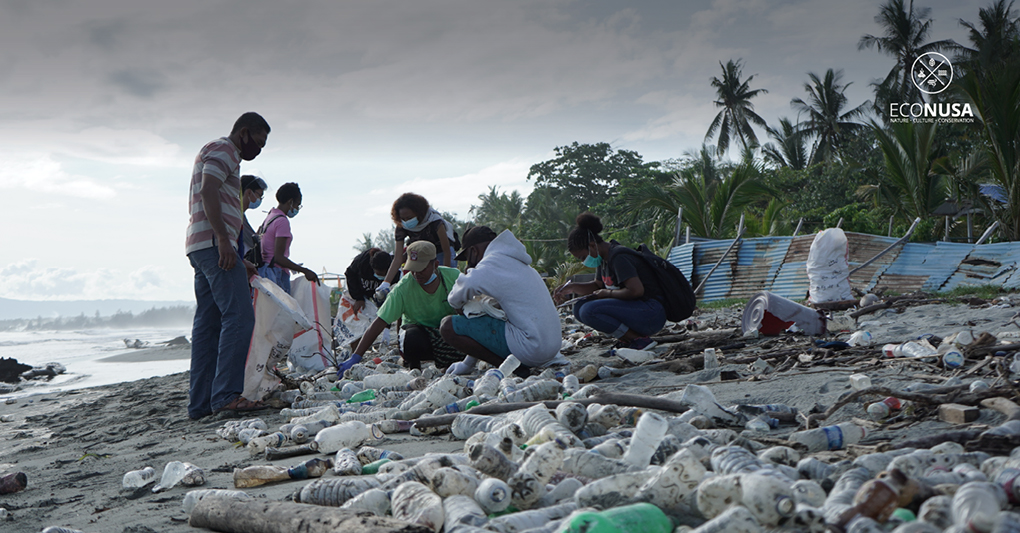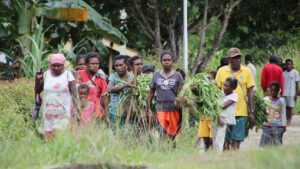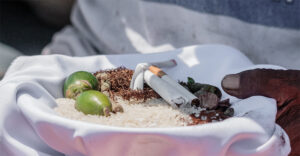
Pandemic has forced us to stay at home. Nearly all activities, including working, schooling, and even buying daily needs, should be done virtually. This soars online shopping. Data from the Indonesian E-commerce Association (idea) and We Are Social 2020 show that online shopping goes up by 25-30 percent. Meanwhile, the Indonesian Institutes of Sciences (LIPI)’s Center for Oceanography and Population Studies on April 20-May 5, 2021, recorded that online shopping of most Greater Jakarta residents tended to soar from 1-5 times to 1-10 times a month.
Unfortunately, based on the LIPI study here, it is found that 96 percent of the delivered packages are wrapped in plastic materials, mainly tape, plastic wrap and bubble wrap. The condition increases the amount of plastic waste and burdens the final disposal sites during the pandemic. In fact, plastic has given major contribution to global warming. From production to disposal and processing phases, plastic produces a large amount of greenhouse gas into the atmosphere.
Plastic leads to climate change
It is estimated that there are 500 million to 1 billion of plastic bags used by the world population in a year, or around 1 million plastic bags per minute. To meet this need, it requires around 12 million barrels of oil materials per year which is processed by burning. Burning method has produced greenhouse gas.
Plastic is disposed after use. It requires up to 400 years to degrade plastics on its own process because bacteria could hardly deconstruct the element. Owing to the very long time span, plastic is usually eliminated by burning on the final disposal site. However, this method increases emission of greenhouse gas to the atmosphere.
Read also: Jayapura Vice Mayor: “Trash is Our Joint War”
Indonesia the largest plastic contributor
The World Economic Forum predicts that by 2050 the amount of plastic waste on the sea will be larger than fish. Indonesia contributes to the plastic waste here. Studies done by Jenna Jambeck in 2010 found that Indonesia is the second largest plastic producer in the world after China. In fact, in terms of plastic use, both Indonesia and China use less plastics than that of the United States of America.
According to Jambeck, American populations at average use 38 million kilograms of plastic-made products or packages per day. But, this country has good waste management so as to leave a very small amount of waste. Meanwhile, China that uses 32 millions of plastic everyday leaves around 24 million kilograms of unprocessed waste. Indonesia, which uses 11 million kilograms of plastic per day, still makes 9 million kilograms of unprocessed waste.
Effect to ecosystem
The unprocessed waste will contaminate the environment. The Ministry of Environment and Forestry (MoEF) records that 80 percent marine debris comes from land, including plastics. Many sea animals consider that plastic waste floating on the water is their food. As a result, many animals like turtles and whales died after consuming plastic debris. Small fish also misunderstood microplastic as their diets. Other sea living creatures are also affected by the plastic waste. Some others are entrapped or choked by plastics.
Initiative to reduce single use plastic
Contributing to a solution to the alarming waste conundrum that threatens land and sea ecosystems, EcoNusa conducted various kinds of activities to solve the waste problem here. It is not only regular beach clean-up (BCU) activity involving alumni of EcoNusa’s School of EcoDiplomacy (SED) and various communities, but also signing commitment to reduce single use plastics with 13 universities in Indonesia.
Read also: Free Plastic Parade for Eco-friendly Policy
The 13 entities here are Malang’s Brawijaya University, University of Khairun Ternate University, University of Papua Manokwari, Yogyakarta’s Gadjah Mada University, Bandung’s Padjajaran University, Makassar’s Hasanuddin University, Ambon’s Pattimura University, Muhammadiyah Luwuk University, Tomptika Luwuk University, University of Sintuwu Maroso Poso, University of Kristen Tentena, STP Hatta Sjahrir Banda Naira and STKIP Hatta Sjahrir Banda Naira.
Besides, it also needs initiative to transfer awareness on the jeopardy of plastic waste to the environment. For a few years before, some Indonesian CSOs including EcoNusa and communities have initiated a joint movement so-called the Plastic Waste Parade, performed annually. The movement endorsed the government to be more serious in tackling the worsening waste conundrums.
Last year, the 2020 Plastic Free Parade addressed three pledges as that of the previous year, namely calling the government to ban single use plastic; calling the government to improve waste management system; and, encourage producers and business players to be responsible for the post consumption plastic. In 2021, Plastic Free Parade will be held on July 21.
Author: Nur Alfiyah
Editor: Leo Wahyudi









